Rosehip paste with honey, pollen, ginger, lemon and mint, at cold
Tonic / Energizer / Ally of the immune system
Rosehip paste or concentrated syrup/juice with honey, pollen, ginger, lemon and mint, at cold - a combination of ingredients that becomes a allied shield for the immune system, the whole body feeling revived, energized.
Servings: 37 servings
~ 750 ml of concentrated rosehip paste
Ingredients
Materials
- - containers
- - sieve, cheesecloth for filtering/separating juice
Preparation
 Ingredients are prepared, washed, weighed, ...
Ingredients are prepared, washed, weighed, ...
→ Rosehip fruits can be washed in 2-3 waters, then you can leave them in the water for 30 minutes. It is good to choose rosehips with the softest pulp, not dry, just to be able to extract the pulp from them.
→ Honey: it is recommended to use a raw, acacia honey. This will also help preserve the rosehip paste.
→ Pollen: raw pollen is recommended (keep it in the freezer).
→ Ginger: wash, clean the peel and cut into thin slices so that they can be blended easily later.
→ Lemon: a medium-large lemon is recommended, as it is important both for its taste and acidity, helping to fuse the ingredients.
→ Mint: fresh mint is recommended, but you can also use 2-3 drops of peppermint essential oil for internal use.
→ Water: it is strictly used to facilitate the mixing of the ingredients, as well as to dilute the paste, so that it can be filtered.
The cold rosehip paste can be made with only rosehips, honey and possibly water for a slight dilution, the rest of the ingredients being basically the customization of the recipe. The ingredients (minus the lemon) will mix using a blender/mixer. Add the rose hips, ginger, pollen, mint and water to the blender jar. Mix for ~1 minute, until the rose hips are finely chopped.
The ingredients (minus the lemon) will mix using a blender/mixer. Add the rose hips, ginger, pollen, mint and water to the blender jar. Mix for ~1 minute, until the rose hips are finely chopped.
If the blender container is smaller, you will blend in several passes.
It's interesting that the seeds from the rose hips are not crushed when mixing (at least that's how it was in my case). Squeeze the lemon, add the obtained lemon juice to the blender bowl and mix for another ~ 20 seconds to homogenize.
Squeeze the lemon, add the obtained lemon juice to the blender bowl and mix for another ~ 20 seconds to homogenize. Next, filter the formed paste using a sieve or cheesecloth.
Next, filter the formed paste using a sieve or cheesecloth.
I used a medium sieve as filter mesh, which only stops the seeds from the rose hips.
I also tried filtering through cheesecloth, but the paste being quite dense, filtering was cumbersome (I would have needed to add more water for dilution) and I gave up on this method.
The remaining residue, i.e. the kernels with a little pulp, you can throw away (I don't recommend) or you can try to filter them one more time, adding water and finally a little honey. From the second filtration, I obtained ~1 liter of juice, ready to drink.
⚠ Do not combine the juice obtained from filtering the residue (pulp) with the obtained paste, because having water, you will reduce its shelf life. A thick paste is obtained, on top of which we add the honey and mix until homogeneous. Honey is a very good preservative and thus we will ensure that our preparation will keep well.
A thick paste is obtained, on top of which we add the honey and mix until homogeneous. Honey is a very good preservative and thus we will ensure that our preparation will keep well. Rosehip paste or rosehip juice concentrate is ready. We will store it in glass containers, hermetically sealed, necessarily cold, in the refrigerator.
Rosehip paste or rosehip juice concentrate is ready. We will store it in glass containers, hermetically sealed, necessarily cold, in the refrigerator.
⚠ It is recommended that the paste sit for at least 24 hours for the ingredients to macerate.
It will be consumed as such, diluted with water or in combination with various drinks.
Administration
→ 2-4 week cures are recommended, especially in the autumn-winter period, with breaks between 1-2 week cures.
→ It can be consumed as such, as a soft drink diluted with water (1 spoon per ~200 ml water) or added to various drinks.
→ For children, the spoon will be replaced with a teaspoon.
Observations
→ Water, I used it to be able to mix the ingredients and to facilitate the process of extracting/filtering the paste, but be careful with the amount, because it will reduce the shelf life of the product.
→ Choose well-ripened rosehips with pulp as fleshy and soft as possible to have something to extract from them, otherwise you won't extract too much pulp...
⚠ Do not throw away the pulp left after filtering. You can mix this with water and filter once more. Add honey to taste and get a refreshing drink with tonic/energizing properties. It will be kept in the refrigerator and it is recommended to consume it within 3 days.
Preservation and validity:
→ Rosehip paste must be kept cold, in the refrigerator, in tightly closed glass containers (jars).
→ If it is not opened, a jar can be kept in the fridge for ~6 months!
→ After opening a jar, it is recommended to consume it within a maximum of 3 months and keep it only in the refrigerator.
→ Avoid contact with air and light as much as possible because they accelerate the oxidation of the paste and automatically the loss of properties. That is why small containers are recommended.
Effects and benefits
- tonic, energizing
- stimulates immunity
- prevents cold and flu
- regulates blood pressure
- reduces bad cholesterol
- blood detoxifier
- liver drainer / tonic
- antioxidant
- anti-inflammatory
- antianemic / mineralizing
- helps the secretion of collagen
- helps the nervous system
- stimulates metabolism
- increases appetite
Side effects
- exaggeration compared to the recommended amount can lead to digestive problems such as abdominal pain, diarrhea.
Contraindications
- contraindicated for those allergic to any of the ingredients
- for those with sweet tooth restrictions, I can make this paste without honey.
FAQ 💡❓
1. What are the main benefits of rosehip paste with honey and pollen for immunity?
➡️ This natural paste is a real vitamin powerhouse. Rosehips provide abundant vitamin C, pollen adds essential amino acids and enzymes, while honey amplifies antioxidant effects — all working together to strengthen immunity and protect the body during the cold season. 🍯🌿
2. Why is the rosehip paste prepared cold instead of being boiled?
➡️ Cold preparation preserves delicate, heat-sensitive nutrients, especially vitamin C from rosehips, as well as live enzymes from honey and pollen. The result is a much more potent and therapeutic natural remedy.
3. What role does ginger play in combination with rosehips and honey?
➡️ Ginger brings anti-inflammatory and energizing properties, supporting digestion and blood circulation. Combined with honey and rosehips, it helps detoxify and energize the body. 🌶️💪
4. How do lemon and mint enhance the paste’s therapeutic effects?
➡️ Lemon increases vitamin C content and adds freshness, while mint soothes the stomach and provides a cooling effect. Together, they balance the taste and strengthen the detoxifying properties of the blend. 🍋🌿
5. How long can the rosehip paste with honey be stored, and under what conditions?
➡️ Store the paste in clean glass jars, tightly sealed, and keep refrigerated for 2–3 months. Proper sealing prevents fermentation and oxidation of the natural ingredients.
6. How should this paste be consumed for maximum benefits?
➡️ Take one teaspoon each morning on an empty stomach for 2–3 weeks. It can be eaten as is or diluted in lukewarm water (under 40°C / 104°F) to preserve the enzymes and vitamins in honey.
7. Can children safely consume this rosehip paste?
➡️ Yes, but only children over 3 years old, in small doses (half a teaspoon). It’s a natural supplement that helps prevent colds, but should be avoided by those allergic to honey or pollen. 🧒🍯
8. Are there any contraindications for rosehip paste with pollen and ginger?
➡️ People allergic to bee products, those with severe gastric issues, or diabetics should consume it cautiously. Its natural sugars and organic acids may irritate the stomach lining in excess. ⚠️
9. Can this paste be used as a natural remedy for colds and flu?
➡️ Yes, it’s an excellent natural immune booster. The mix of rosehips, ginger, honey, and lemon helps reduce inflammation and relieve cold symptoms naturally. 🤧🍵
10. Are there any side effects from consuming too much?
➡️ Excessive intake may cause mild digestive discomfort or increased stomach acidity. Due to the presence of pollen, it can also trigger allergic reactions in sensitive individuals.
11. What’s the difference between this paste and a classic rosehip syrup?
➡️ Unlike syrup, which is heat-processed and contains sugar, this cold paste is raw and preservative-free. It’s richer in nutrients and ideal for natural therapy and wellness routines. 🌿
12. Can this paste be combined with other natural remedies?
➡️ Yes, it can be combined with propolis tincture, herbal teas, or natural juices such as sea buckthorn or aronia, for a complete body revitalization cure. 🍇🌸
13. Does rosehip paste help recovery after illness or physical effort?
➡️ Yes. Thanks to its high content of antioxidants, vitamins, and enzymes, it supports tissue regeneration and increases energy levels, making it ideal during recovery periods. 💪
14. How can you achieve a smooth and creamy texture?
➡️ After macerating the ingredients, blend them with a food processor or mortar until a creamy, uniform texture is obtained — perfect for daily consumption.
15. Can this paste be used externally for cosmetic purposes?
➡️ Yes, in small amounts it can be applied as a facial mask. Rosehips have antioxidant effects, while honey and ginger soothe and rejuvenate the skin. 🌹✨
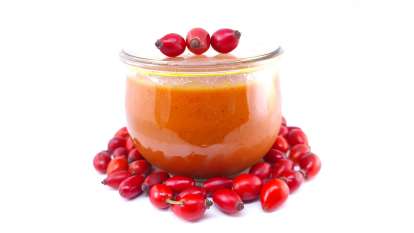
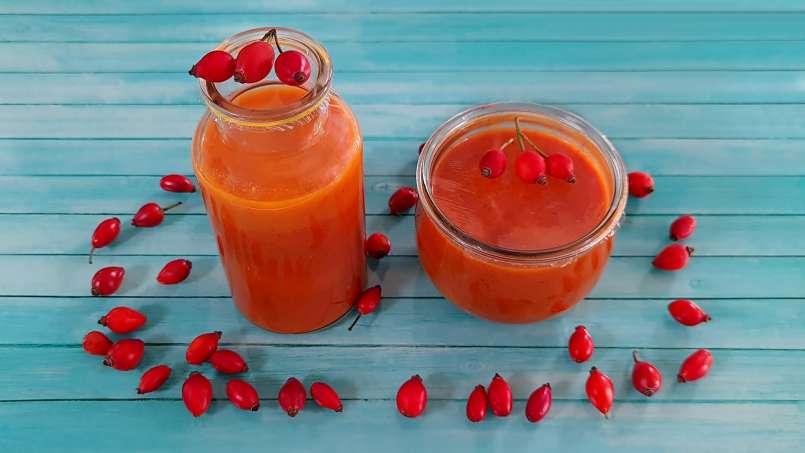
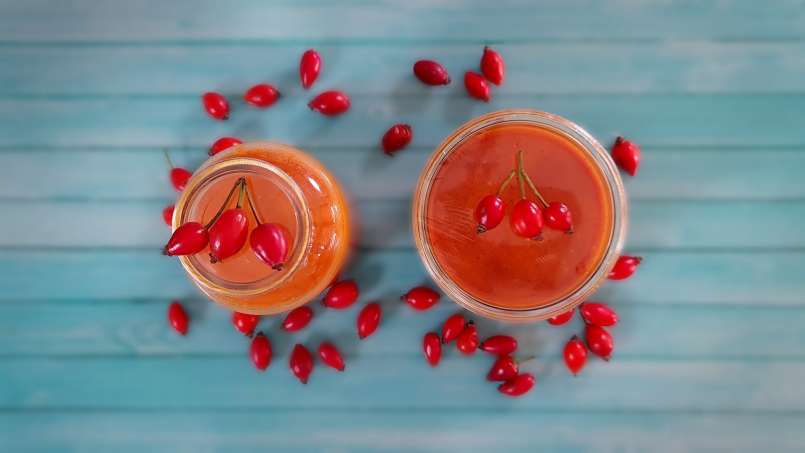
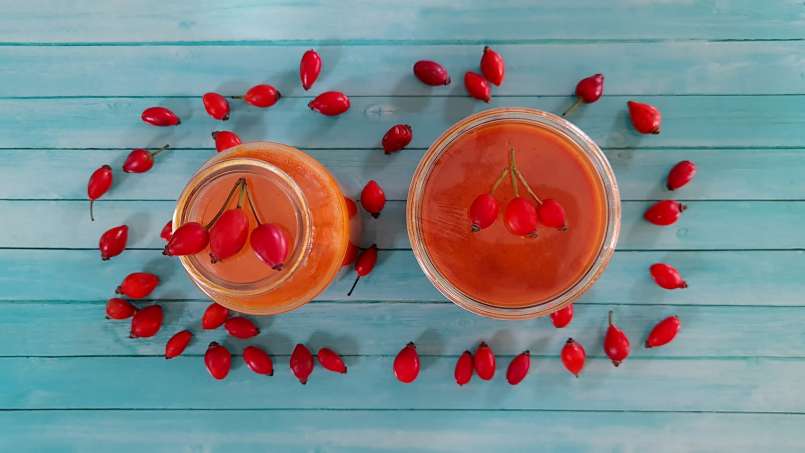
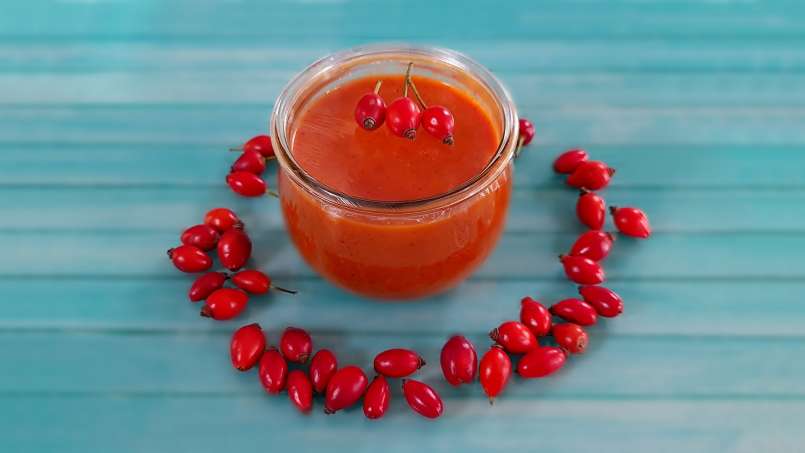
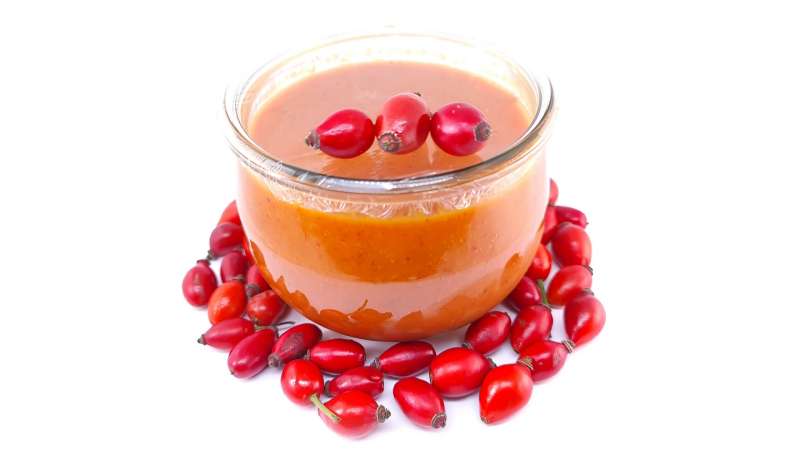
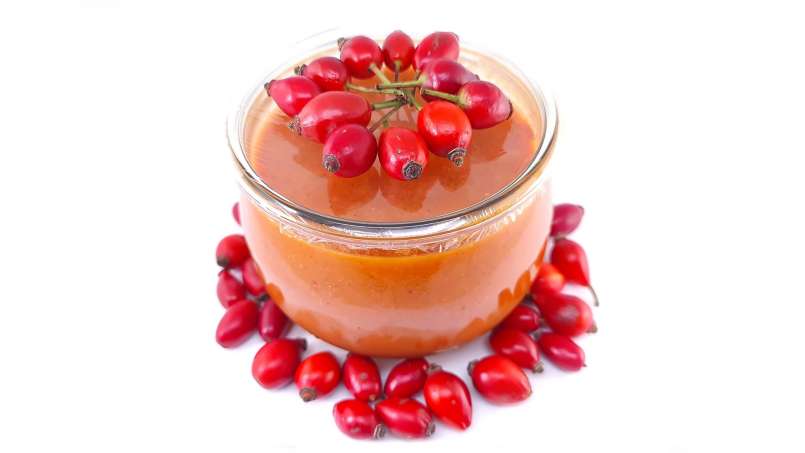
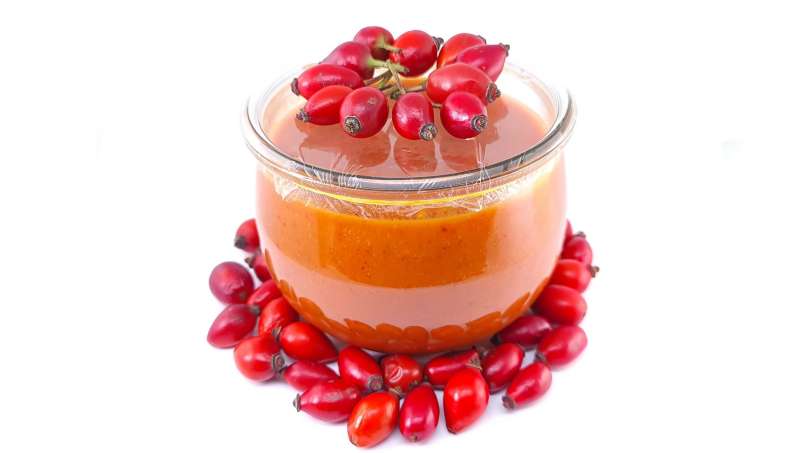
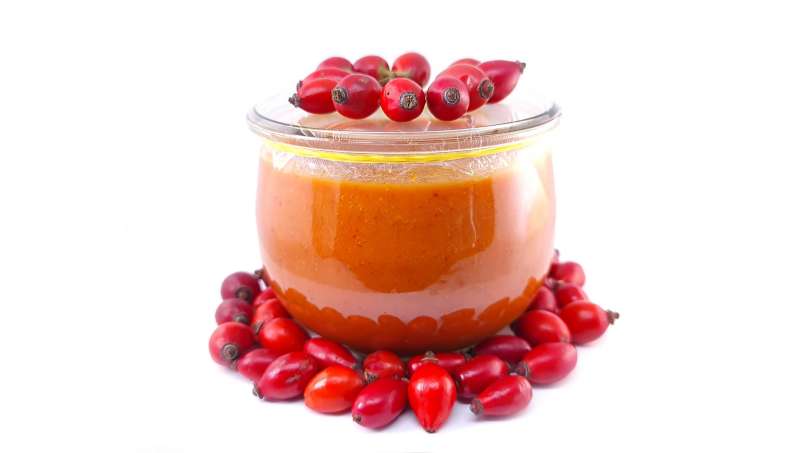
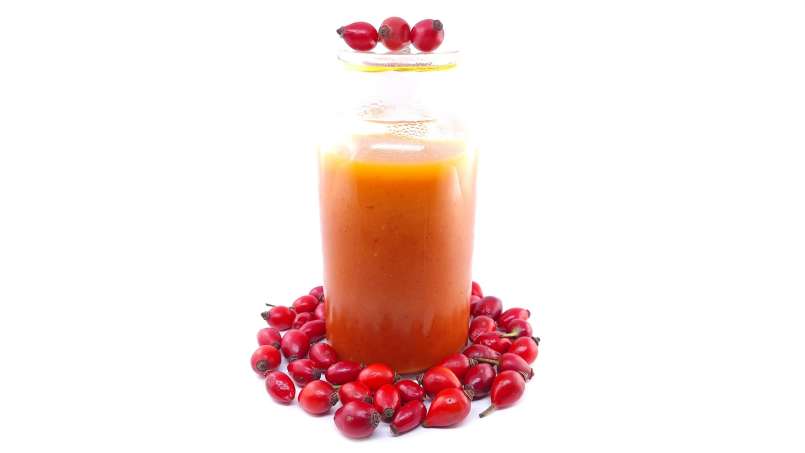
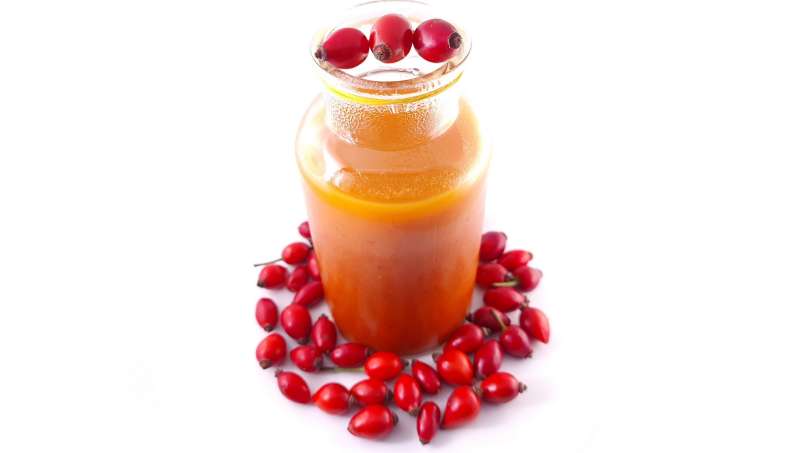
Comments